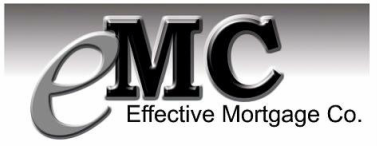Reverse Mortgage Loan Process
Finding and getting a reverse mortgage loan is a simple yet complicated process. Reverse mortgages allow homeowners to use the equity they have built up in their homes. The concept was originally developed to allow “house-rich, cash-poor” elderly or retired homeowners access to their home equity to support things like living expenses or emergency bills without having to sell their homes.
The process of getting a reverse mortgage begins with the research. Take your time to get maximum information and learn more about this kind of home financing. Make sure to seek advice from trusted friends or others who have taken out or considered a reverse mortgage; their perspective can be invaluable.
Here are six easy steps that will streamline the reverse mortgage loan process, and with a little preparation and organization, it will minimize the headaches and speed up your mortgage application.
Pre-Approval: The pre-approval process is easy requiring only a few questions to see if you are a good candidate for a Reverse Mortgage.
Counseling: Reverse mortgage applicants are required to participate in a consumer education session with a HUD-approved counselor. The counselor will ensure that you understand your reverse mortgage options. He will explain the legal and financial obligations of a reverse mortgage and discuss other financing alternatives to help ensure you make the right decision.
Application: Once you have a done your research and have determined that a Reverse Mortgage is right for you, one of our expert Reverse Mortgage Specialists will guide you through the application package. This can be done in person or over the phone.
Home Appraisal: Once we have received your Signed Counseling Certificate and application, we will coordinate for an appraiser to go to your home. We will arrange for a professional appraiser to contact you to schedule an appraisal that will determine the value of your home. The appraisal will be used to calculate the amount you can receive from your reverse mortgage. Once your appraisal is completed, your appraisal report will be reviewed to ensure it meets minimum guidelines and my be approved, suspended, or approved subject to repairs. You will be provided with a copy of your appraisal at closing.
Underwriting: Once your appraisal is approved, a value has been determined, and the title report has been cleared, our underwriting department will review your application and supporting documents to ensure that approval conditions have been met.
Closing / Settlement: Once your application will be approved by the underwriting department, we will schedule a meeting to finalize the paperwork. The paperwork completion usually takes about 1 hour. We will then send the final loan documents to the lender, any funds disbursements due to you will be forwarded from the processing center shortly thereafter.
Finding and getting a reverse mortgage loan is a simple yet complicated process. Reverse mortgages allow homeowners to use the equity they have built up in their homes. The concept was originally developed to allow “house-rich, cash-poor” elderly or retired homeowners access to their home equity to support things like living expenses or emergency bills without having to sell their homes.
The process of getting a reverse mortgage begins with the research. Take your time to get maximum information and learn more about this kind of home financing. Make sure to seek advice from trusted friends or others who have taken out or considered a reverse mortgage; their perspective can be invaluable.
Here are six easy steps that will streamline the reverse mortgage loan process, and with a little preparation and organization, it will minimize the headaches and speed up your mortgage application.
Pre-Approval: The pre-approval process is easy requiring only a few questions to see if you are a good candidate for a Reverse Mortgage.
Counseling: Reverse mortgage applicants are required to participate in a consumer education session with a HUD-approved counselor. The counselor will ensure that you understand your reverse mortgage options. He will explain the legal and financial obligations of a reverse mortgage and discuss other financing alternatives to help ensure you make the right decision.
Application: Once you have a done your research and have determined that a Reverse Mortgage is right for you, one of our expert Reverse Mortgage Specialists will guide you through the application package. This can be done in person or over the phone.
Home Appraisal: Once we have received your Signed Counseling Certificate and application, we will coordinate for an appraiser to go to your home. We will arrange for a professional appraiser to contact you to schedule an appraisal that will determine the value of your home. The appraisal will be used to calculate the amount you can receive from your reverse mortgage. Once your appraisal is completed, your appraisal report will be reviewed to ensure it meets minimum guidelines and my be approved, suspended, or approved subject to repairs. You will be provided with a copy of your appraisal at closing.
Underwriting: Once your appraisal is approved, a value has been determined, and the title report has been cleared, our underwriting department will review your application and supporting documents to ensure that approval conditions have been met.
Closing / Settlement: Once your application will be approved by the underwriting department, we will schedule a meeting to finalize the paperwork. The paperwork completion usually takes about 1 hour. We will then send the final loan documents to the lender, any funds disbursements due to you will be forwarded from the processing center shortly thereafter.
HUD Disclaimer: "This material is not from HUD or FHA and has not been approved by HUD or a government agency."

